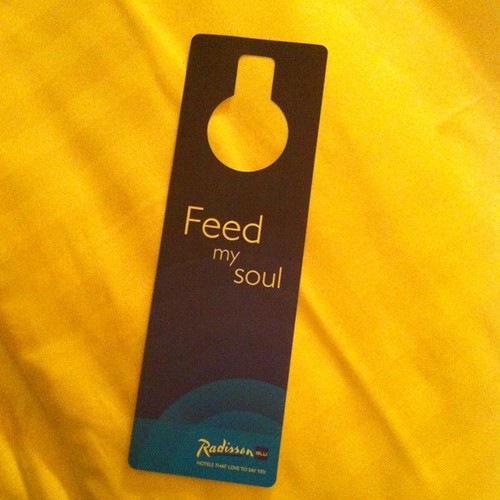How to be a journalist
Aw, shucks. Almost made me go all sentimental for those good ol’ days.
Er, almost.
Thanks to Jay Rosen for the link.
Not getting it
It’s comical to watch guys who have been big names in steam media trying to catch on to online media — and getting the tone completely wrong, as with Yawnsley here. They just don’t get it. Irony, elusiveness and understatement are what works here. I know another really good print journalist who sometimes ventures onto Twitter. But he never links to anything he’s written or finds interesting. I’m fond of him and challenged him gently about it when we met at a conference. “Why don’t you link to stuff?”, I said. He looked sheepishly at me. “Because I don’t know how to do it,” he replied. I offered to help, but he hasn’t come back to me. Sigh.
The iPhone that went to space (and fell to earth — still working)
Homemade Spacecraft from Luke Geissbuhler on Vimeo.
Amazing.
Reading the pulse
This morning’s Observer column.
One of the few comical aspects of the spending review is the frantic attempts by all concerned to predict how the victims of Osborne's axe will respond. The major newspaper groups and the Tory party will of course be deploying the usual – expensive – steam-age tools: opinion polls and focus groups. The cash-strapped Labour and Liberal Democrat parties may have to resort to cheaper techniques – inspecting the entrails of slaughtered goats, perhaps. In the interests of levelling the playing field, therefore, this column offers them a better idea: intelligent data-mining on Twitter.
It’s taken a while for the penny to drop, but finally the world is waking up to the fact that the phenomenon of social networking might actually tell us useful things about what's happening out there in the world beyond the Washington Beltway and the Westminster village. Not only that, but the resulting data might even be useful for predicting what’s likely to happen…
Blair in his own words
My friend Gerard alerted me to this remarkable conversation between Tony Blair and Wouter Bos, a former Dutch Cabinet minister who has now retired from politics. Two things stand out for me: the fact that a decent amount of time (nearly an hour) was allocated for the conversation; and how open and relaxed Blair is. This is, I suspect, a product of several factors: firstly, he is talking to one of his peers — another former senior politician — rather than to a journalist; secondly, the fact that the interview is not taking place in the UK, and is therefore free from the confrontational ethos of British political discourse; and thirdly the fact that Bos is a very thoughtful and insightful interrogator. Worth watching.
1931 here we come
Paul Krugman’s verdict on Slasher Osborne.
Both the new British budget announced on Wednesday and the rhetoric that accompanied the announcement might have come straight from the desk of Andrew Mellon, the Treasury secretary who told President Herbert Hoover to fight the Depression by liquidating the farmers, liquidating the workers, and driving down wages. Or if you prefer more British precedents, it echoes the Snowden budget of 1931, which tried to restore confidence but ended up deepening the economic crisis.
The British government’s plan is bold, say the pundits — and so it is. But it boldly goes in exactly the wrong direction. It would cut government employment by 490,000 workers — the equivalent of almost three million layoffs in the United States — at a time when the private sector is in no position to provide alternative employment. It would slash spending at a time when private demand isn’t at all ready to take up the slack.
Why is the British government doing this? The real reason has a lot to do with ideology: the Tories are using the deficit as an excuse to downsize the welfare state. But the official rationale is that there is no alternative.
Indeed, there has been a noticeable change in the rhetoric of the government of Prime Minister David Cameron over the past few weeks — a shift from hope to fear. In his speech announcing the budget plan, George Osborne, the chancellor of the Exchequer, seemed to have given up on the confidence fairy — that is, on claims that the plan would have positive effects on employment and growth.
Instead, it was all about the apocalypse looming if Britain failed to go down this route. Never mind that British debt as a percentage of national income is actually below its historical average; never mind that British interest rates stayed low even as the nation’s budget deficit soared, reflecting the belief of investors that the country can and will get its finances under control. Britain, declared Mr. Osborne, was on the “brink of bankruptcy.”
What happens now? Maybe Britain will get lucky, and something will come along to rescue the economy. But the best guess is that Britain in 2011 will look like Britain in 1931, or the United States in 1937, or Japan in 1997. That is, premature fiscal austerity will lead to a renewed economic slump. As always, those who refuse to learn from the past are doomed to repeat it.
The last Crocuses
When I went back two days later, they were finished. Winter’s on its way.
The iChair
A new use for old technology.
Eh?
I’m staying in a Radisson hotel for an OU event and came back from the conference dinner to find this on the bed. Wonder what it means? Maybe it’s an alternative to the Gideon bible. I don’t think I’ll hang it on the door, though. One can’t be too careful. These Christians will stop at nothing. I am reminded of the old joke about Belfast being the only city in the world when, if there’s a knock on the door at midnight, you’re relieved that it’s the Jehovah’s Witnesses.





